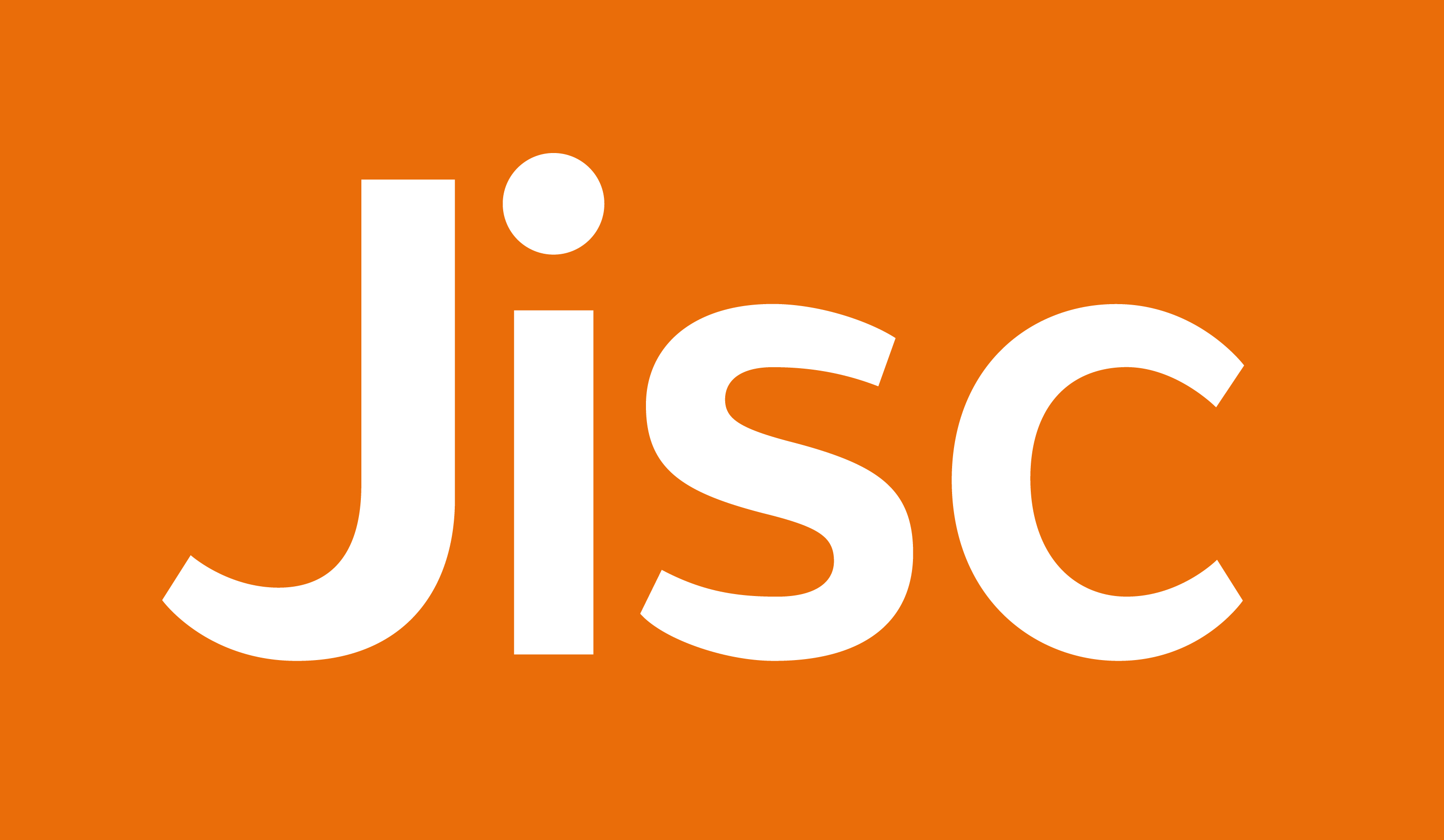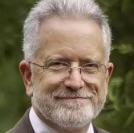DPC
Let's Get Together and Feel Alright.....
The Digital Preservation community is growing. The DPC adding its 74th member this month (we’ve doubled in size over the past 5 years) is a good example of this. But it’s not just about absolute numbers. International Digital Preservation Day showed that the growth is multi-faceted, with geographical and sectoral expansion being the most obvious changes. Sooner or later we’re going to be confronted with a serious test: how can a small community become a big community while still being welcoming? Is it possible that we can learn from other communities? I’ve been thinking about how I can draw from my experiences beyond my work life to help answer these questions.
Sic Transit Gloria Digitalis: The BitList in Beta
I spent most of the latter half of November locked in a life or death battle with Microsoft Excel, arranging, sorting and making sense of entries to the BitList. I seem to have survived this ordeal-by-spreadsheet, even if myriad little boxes containing doubtful formulae dance restlessly through the half-darkness of my closed eyes.
The BitList is a simple enough proposition - a list of digital content and types that are called out for special attention because the digital preservation community has particular concerns over them. It’s a list created by open invitation to the whole digital preservation community and validated by an international expert panel drawn from the DPC membership. The impact is immediate but also, because, the DPC will maintain over the longer term we can move things up and down and in that way we can track progress over the long term too. The BitList therefore means we can identify honest-to-goodness problems and we can celebrate when those problems are resolved.
What I Wish I Knew Before I Started - DPC Student Conference 2018
Event Description
The DPC, with support from CoSector at the University of London, the ARA, IRMS, Arkivum, Preservica, and Mirror Web, is pleased to invite students, researchers and new professionals in archives, records management and librarianship to a one day conference on practical workplace skills in digital preservation. This conference will bring a select group of leading practitioners together with the next generation of archivists, records managers and librarians to discuss the challenges of digital collections management and digital preservation.
The day will open with a consideration of digital preservation basics and a scan of emerging trends in digital preservation. In the afternoon, a group of invited speakers will reflect on ‘what I wish I knew before I started’, or 'what I actually do all day' giving delegates an advantage in their own career development and helping those who frame the curriculum a chance to extend their students' readiness for the workplace. The day will end with a round table session, allowing delegates to ask questions about digital preservation practice and careers.
Programme and Slides
10:00 Registration Opens
10:30 Session One – Getting Started with Digital Preservation
- Welcome and Introduction to Digital Preservation – Sharon McMeekin, DPC
- Digital Preservation, an Information Manager’s Perspective - Steph Taylor, CoSector, University of London
- Digital Preservation, a Technologist’s Perspective - Matthew Addis, Arkivum
- Sponsor Presentations
12:30 Lunch – Lunch and refreshments provided
13:15 Session Two – What I Wish I Knew Before I Started
Presentations from Invited Speakers on working within the Digital Preservation field:
- Adrian Brown, Parliamentary Archives
- Glenn Cumiskey, British Museum
- Edith Halvarsson, Bodleian Libraries, University of Oxford
- Dave Thompson
15:00 Comfort Break - Tea and coffee provided
15:20 Session Three – Roundtable with the Day’s Speakers
16:00 Thanks and Close
This Conference Will:
- Provide participants with a core grounding in applied digital preservation
- Provide an overview of emerging trends in digital preservation
- Present practical examples of the sorts skills that employers are looking from in staff working in digital preservation
- Present role models of practitioners whose careers have taken them to leading positions in digital preservation
- Allow delegates to question practitioners about their day-to-day work and the skills that they reply upon
This day will be of interest to:
- Students and recent graduates in library and archive schools
- Students and recent graduates in information management and records management
- Tutors, lecturers and course convenors in library and archive schools, or who teach records management or information governance
- Innovators, vendors and commentators on digital preservation and cognate fields
- Employers seeking to understand the skills needed to operate digital preservation facilities or seeking to recruit new entrants
Email Preservation: How Hard Can It Be? 2
Introduction
Email, the quintessential record of our age, is surprisingly hard to preserve. This relatively straightforward task is an encounter with all the open challenges and operational difficulties of practical digital preservation. Email messages go through so many processes from creation to delivery, and with so many variations of attachment, that they can be technically hard to capture; they contain any amount of personal and sensitive data wrapping them in legal and regulatory complexity; and they occur in a profusion that is hard to comprehend. The death of email has long been anticipated yet the global inbox continues to expand, estimated recently to be around 246 billion new items every day. So how can we find and preserve the messages that really matter amidst all the spam?
The DPC is working with partners on the International Task Force on Technical Approaches to Email Archives. This Task Force shared its initial findings with the DPC in July 2017, and is now ready to present a close-to-finished draft with DPC members. This will allow challenges and concerns arising from DPC members to be explored more fully in the report. Some issues may be considered out of scope for the Task Force. These can also be captured to support the drafting of a second edition of the popular DPC Technology Watch Report on ‘Email Preservation’ first published in 2011.
This DPC briefing day, offered in partnership with the Andrew W Mellon Foundation, will explore emerging technologies and tools used to ensure that email can be preserved as a record for the long term. It will assess the state of frameworks, tools and approaches being taken toward email as a critical modern record, and will explore other organizational or policy-based barriers to effective email preservation and how these might be addressed
Presentations will:
- Introduce the technical underpinnings of email as a data type and delineate the challenges associated with preservation
- Review the Task force on Technical Approaches to Email Preservation
- Present an emerging technical roadmap for the technologies that enable email management, preservation and access
- Discuss and review non-technical challenges to the preservation of email.
- Examine the regulatory, financial and cultural challenges organisations and individuals face when preserving or using email archives.
- Report next steps for the roadmap and present work towards a revised Technology Watch Report
Attendees will be given prior access to a summary of the Task Force’s report and will be asked to offer comment and review.
Who should come?
This workshop will interest:
- Collections managers, librarians, curators and archivists in all institutions
- Records managers in institutions with a need for long-lived data
- CIOs and CTOs in organisations with particular dependence on email as a record
- Vendors and developers with digital preservation solutions
- Scholars, especially historians with interests in email as an historical source
- Journalists, forensic investigators or e-discovery lawyers who access and preserve email for evidential purposes.
DPC Members please login to read:
Report Overview and Recommendations for Discussion at Digital Preservation Coalition Briefing Day
Programme
DPC Members please login to see recorded sessions
1000 – Registration open, tea and coffee
1030 – Welcome and Introductions (William Kilbride)
1120 – Q&A
1130 – Using email archives in Research (James Baker, University of Sussex)
1230 – Email as corporate record (James Lappin)
1300 – Lunch
1400 – Jason R. Baron, Drinker Biddle LLP (by video conference)
1430 – Panel discussion introduced by Tim Gollins (National Records of Scotland): technology assisted review, fact, fiction or jam tomorrow and why this matters for email preservation
1515 – Coffee
1530 – Review of Report Recommendations and Roadmap (Chaired by William Kilbride)
1630 – Next steps
1645 – Close
Missed it?
DPC event attendees take great notes. Many thanks to James Baker and David Underdown for sharing theirs:
Read the Story:
Digital Preservation with Time-Based Media Conservation, TATE
Louise Lawson, Patrica Falcao, Chris King and Ana Ribeiro, Time Based Conservation Team, Tate
We have been looking at different aspects of digital preservation for over 10 years now and looking back it is quite exciting to see how far as an institution we have come on our digital preservation journey. This is now coming to a head, as we establish our archival digital storage infrastructure and continue the development of the open source web-application Binder for managing our digital repository. We have set-up a test environment and work with Binder will continue over the coming months, so do watch for future updates.
In parallel with these larger projects, of establishing our archival storage and developing Binder, we have also continued to take smaller steps looking closely at the processes and tools to support our workflows. For instance setting up our workstation with a write blocker and ensuring that our temporary storage, or Interim Storage, meets the minimum requirements for storage of high value digital assets. As part of our digital storage infrastructure we have felt the need for a storage server where we can quickly back-up any digital files provided by an artist before we start any of the selection, quality assessment and archival storage processes that make up our acquisition process. In 2017 our Information Systems department set-up our “Interim Storage”. This is meant to be a first port when a hard-drive arrives to us from an artist, so we can create a copy immediately before we need to make any decisions. As part of that workflow we want to ensure, when accessing hard-drives, that we don’t change them, or unduly delete them.
Research Data Management for All?
Introduction
Research data management has arisen as a key requirement in higher education in the last decade. This new responsibility for research data has been configured differently in different institutions. Roles such as ‘Research Manager,’ ‘Records Manager,’ ‘Digital Archivist,’ ‘Special Collections Librarian’ ‘Repository Manager’ have been defined or extended to meet this new need. It can be hard to see the opportunity for the whole institution when the skills are attached to only one department or service. These distinct roles each have a concern for the managed activities necessary to ensure continued access to digital materials for as long as necessary: so irrespective of local definitions each can benefit from the investment in research infrastructure.
And research data management is not just about curators: it’s about creators too. Good data management, from design through creation to deployment and re-use ensures that records are accurate, complete, authentic and reliable, stored securely, preserved where necessary and accessible as required. So, it enables institutions, teams and individuals to meet subject-specific expectations about research integrity and funder obligations on access, ethics and transparency.
What exactly did I get up to last year?
Another year flies by very quickly. Happy 2018!
Always a useful time to sit back and think about what was achieved last year.
So I started off the year with an ambitious list of things that I wanted to achieve (note to self - *never* do that again!)
As usual I had a mixture of successes and setbacks. All of this helps contribute to both my own understanding about how to work effectively in digital preservation and hopefully the shared understanding of the wider community.
Though I might not have ticked off everything on the list, looking back at the year there was certainly some useful things to come out of it.
University of Liverpool becomes the DPC’s latest Associate Member
Added on 12 January 2018
The University of Liverpool has become the latest organisation to join the Digital Preservation Coalition as Associate Member this week.
Currently exploring digital preservation best practice, the University’s interest in digital preservation is concentrated around the Libraries, Museums, Galleries and Records Management functions which hold institutional records, research articles and theses, research data, born digital archives and archival items in a large range of electronic formats.
A working group from the Library and Computing Services at the University is currently focused on the development of improved workflows and infrastructure to ingest ‘born digital’ material within its institutional and deposited archive collections, and to convert and manage archival material in a range of electronic formats to ensure access in perpetuity.
APTrust and the Draft Declaration of Shared Values
Chip German is program director of the Academic Preservation Trust, and he is senior director for content stewardship and scholarly communication at the University of Virginia Library.
Hello to the DPC community from the Academic Preservation Trust. As some of you know, we’re a consortium of US-based university libraries at research-intensive institutions working together to do digital preservation of the academic and cultural record at scale.
I won’t bore you with background that you can see at our website (http://aptrust.org), including our recent assessment of where we need to focus after three years of operating a non-profit, collaborative, cloud-based repository (you can find this year’s directions at http://tinyurl.com/ybmuczgq). Instead, I think this may be a useful starting point: we’re experiencing healthy, rapid growth in deposits of content (from 22.6 terabytes last April to 54.3 terabytes on January 9), and that is still nowhere near enough. We are also both an ingest and a replicating node of the Digital Preservation Network (DPN), which is showing its own impressive growth in deposits, but nowhere near enough.
Good Practice Takes Practice: Certification and Accreditation for Digital Preservation
Introduction
Digital preservation seems more like a journey than a destination. As technology changes so the processes and tools of effective preservation need to adapt and so good practice remains provisional: more accurately identified as a commitment to constant improvement than a single steady state. Never entirely certain what success looks like, the digital preservation community has over the years developed several proxies for success and maturity of service. The ideal of a Trusted Digital Repository has gained much traction since it was first posited in 1996, and it is now encapsulated and codified as a series of standards. The resulting requirements and checklists provide a framework for repository improvement; but with many demands and too little transparency they can also become a barrier to practical improvement. Practitioners and their managers simply want to know how they are doing and how they can do it better. Good practice takes practice




































































































































